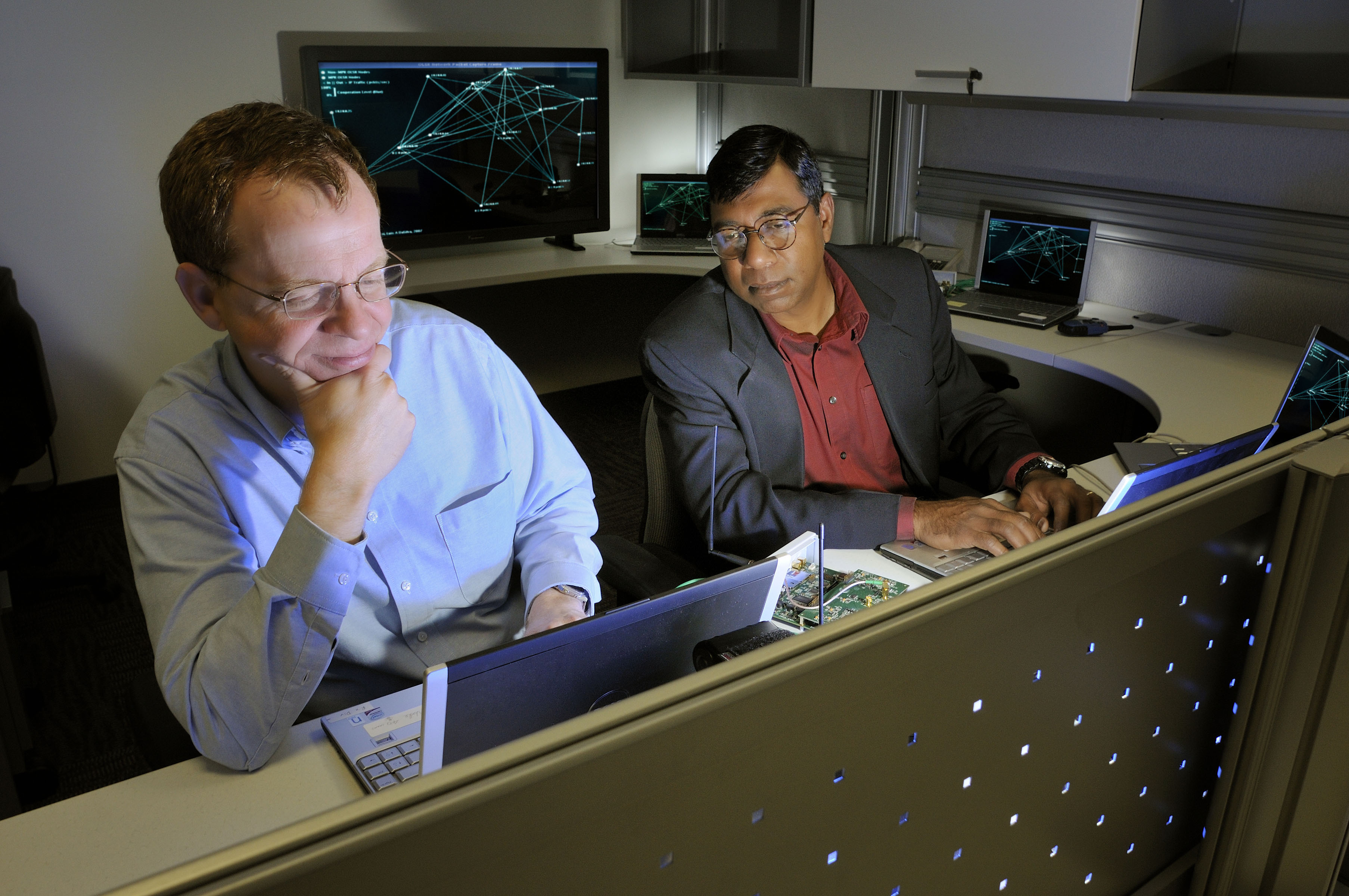Virginia Tech, Howard University partner, receive award to create engineering-oriented center for intelligence community

One of the few Intelligence Community Centers of Academic Excellence (CAE) with an engineering thrust will be based at Virginia Tech with Howard University of Washington, D.C. as an academic partner.
The Office of the Director of National Intelligence, the sponsor of these academic centers, made eight awards from the more than 40 proposals submitted for 2009. Virginia Tech and Howard are now among 21 CAE’s across the country.
While engineering oriented, the program strives for cross-disciplinary involvement, and students from all majors who have an interest in pursuing national security careers can reap benefits.
The Intelligence Community (IC) is comprised of 16 national-level agencies including the Central Intelligence Agency, the Defense Intelligence Agency, the National Security Agency, and the Geo-Spatial Intelligence Agency. The IC also includes elements within agencies one might not normally consider, such as the Treasury Department, State Department and Department of Justice.
It sponsors the creation of these centers at academic institutions to promote the alignment of curricula (for example, scientific and technical programs of study, international relations, foreign language/cultural immersion) in “an effort to carry out America’s national security imperatives over the long term,” according to its call for proposals from universities.
The initial award is for $1 million over two years with an optional three-year extension for a total of $2.5 million over five years. Virginia Tech and Howard will split the resources.
At Virginia Tech, Jeff Reed, director of the Wireless@VT ‘s consortium of research efforts and a chaired professor of electrical and computer engineering, will lead the efforts. He credited the two co-principal investigators, Tamal Bose, associate director of Wireless@VT and Ashwin Amanna, senior research associate, for coordinating much of the successful proposal.
At Howard University, the principal investigator of the project will be Mohamed Chouikha, professor and chair of its electrical and computer engineering department, and the co-principal investigators will be Cynthia E. Winston, associate professor of Psychology and Kimberley Freeman, assistant professor of educational psychology in the School of Education.
Reed credited the coordinated efforts of Wireless@VT, the largest wireless communications/networks research center in the nation, as appealing to the IC community. “We have encompassing expertise in critical IC focus areas such as wireless communications, computer networks, antenna design, microelectronics, system integration, spectrum policy/economy, and very large integrated circuitry,” Reed said.
The proposal benefited significantly from both Virginia Tech and Howard’s excellent schools of language that provide instruction in critical languages and have dedicated study abroad programs.
Since the IC is particularly interested in meeting the nation’s demand for a cadre of intelligence professionals with core skills and with varied cultural and ethnic backgrounds and regional and geographic experience, Virginia Tech’s partnership with Howard University was particularly appropriate.
Howard is one of the most prestigious, Historically Black Universities and Colleges (HBCU’s) in the country, producing the largest number of African-American undergraduate baccalaureate recipients in the fields of science and engineering in the country, according to the National Science Foundation. Howard was also ranked number eight in the nation for the best teaching of undergraduates in the 2010 U.S. News and World Report.
Dennis Blair, director of National Intelligence, explained, “We need employees with a wide background with national ethnic origin in order to be effective with different foreign language capabilities, different heritages, different ethnicities, different orientations, different perspectives, different ideas for us to do our job. And we’re a better force for it.”
Virginia Tech and Howard will develop a program that provides increased value to the students as well as to the sponsor. Key objectives include modifying courses to include topics relevant to the IC, providing funding for students to travel abroad through university programs, training students in IC critical skills and competencies, developing a pre-collegiate outreach program, hosting of IC colloquia, resume development, and assisting in placing students in highly competitive internships throughout the IC and at national labs. While the curriculum development will emphasize engineering and policy, we encourage students from any major discipline to apply to the IC Scholar program.
A minimum of 10 scholars will be selected, with at least five from each university. The scholars can start as either undergraduate or graduate students and can receive stipends and funding for travel abroad. All efforts will be unclassified and there is no commitment for the students to join the IC upon graduation.
At Virginia Tech, electrical and computer engineering faculty members Louis Beex and Sedki Riad, industrial and systems engineering professor Tonya Smith-Jackson, and Aaron Schroder, research scientist of the Institute for Policy and Governance, will also participate.
The end objective of the CAE programs is to create students with increased cultural awareness, improved technical competencies such as critical thinking and analysis, and broader knowledge of the mission of national security agencies. These attributes will make our graduates more competitive to the intelligence community and any job market, Reed said.




